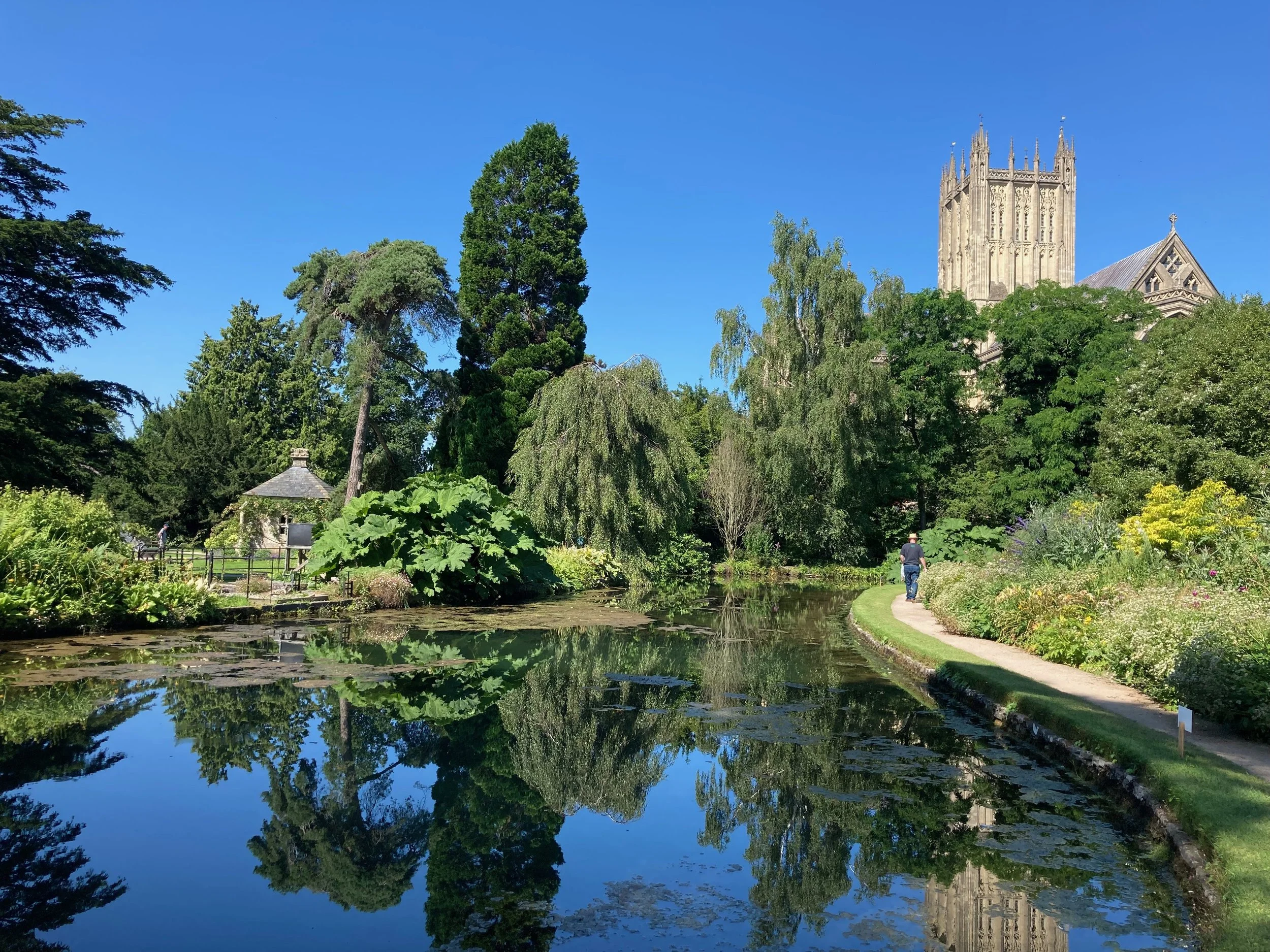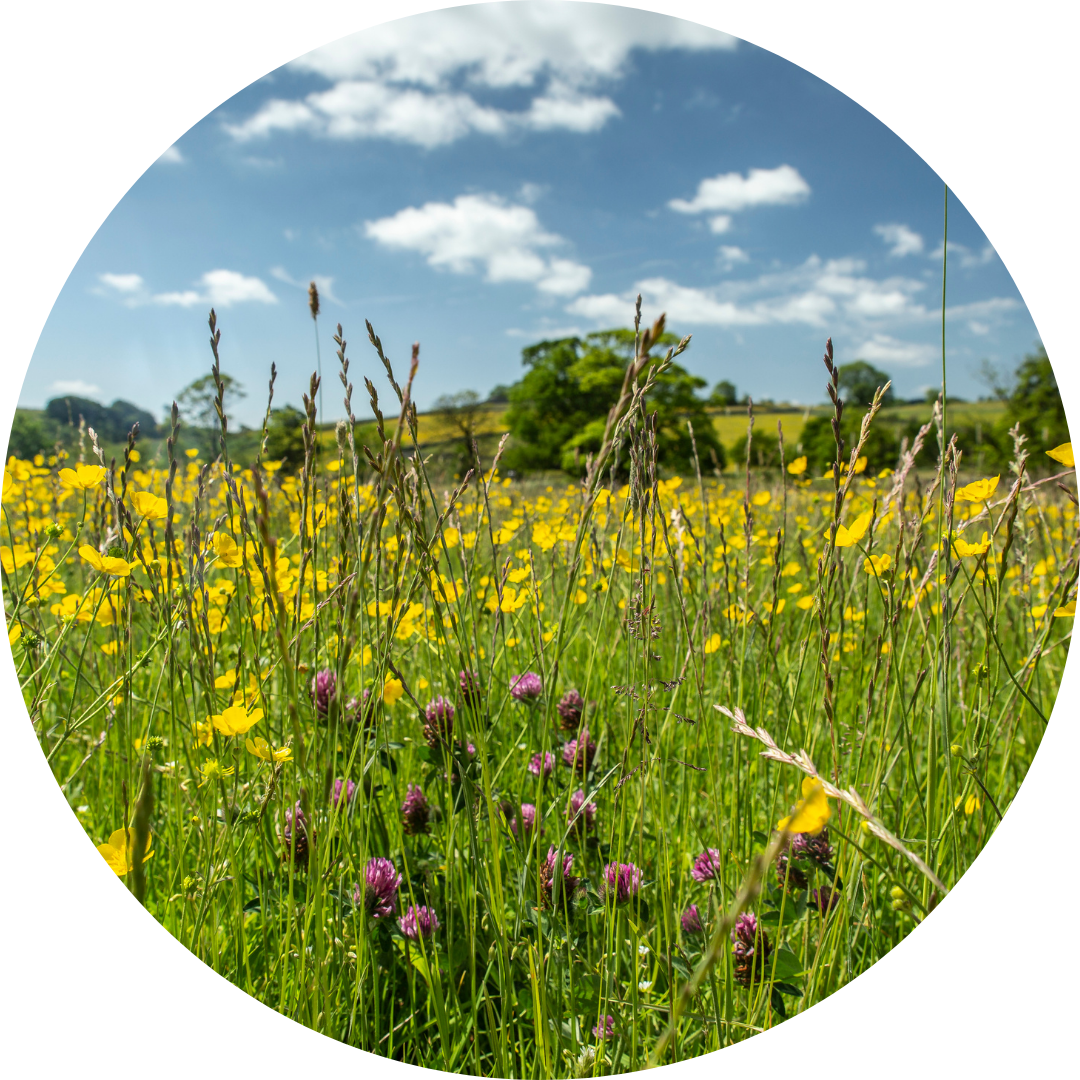Taking Steps to Adapt to Climate Change
Wells is experiencing increased risks from climate change. More unpredictable weather patterns are leading to surface water flooding (like the flash floods in 2023) , drought periods (go for a walk now and witness the effect on the green spaces in and around Wells, you could probably just take a look in your garden!), wild fires and extreme weather events. While we often focus on bouncing back after these events, the reality is that they’re becoming more frequent and intense.
Building climate resilience through
community action and
nature-based solutions
“Climate adaptation isn't just about preparing for the worst - it's about creating spaces where people and wildlife can thrive together, while building stronger, more connected communities.”
The climate will continue to shift for years to come, and we need to find ways to live with these changes. Taking adaptation actions now can helps us limit or avoid the negative effects of climate change, and even maximise positive opportunities it may present.
Wells Act to Adapt Process
Somerset Wildlife Trust’s Act to Adapt process is supporting communities across Somerset to adapt to climate change through collaborative community events. Wells is one of the newest communities to join this important initiative, thanks to generous funding from the Somerset Rivers Authority (SRA)
Talk
Bring together residents to share knowledge and identify climate risks specific to our area.
Shape
Work together to develop practical, locally relevant climate adaptation solutions.
Act
Put our climate adaptation plan into practice through community-led projects and track progress.
Creating lasting change that benefits both people and wildlife in Wells and the surrounding villages.
Wells Climate Adaptation Priorities
Over the past months, residents have come together to share ideas, concerns, and solutions. Out of that collaboration, four key themes have emerged to guide how Wells can build a safer, greener, and more resilient future. These are:
Green Spaces
Residents of Wells value their green spaces and wildlife but see scope for improvement, calling for more trees, hedges, wildflowers, and community planting, while stressing the need to protect mature trees.
Concerns centred on housing pressures, loss of habitats, and excessive bureaucracy, with calls for environmentally responsible planning and stronger enforcement of green policies. Suggestions included enhancing the Strawberry Line as a wildlife corridor, banning herbicides, creating more pathways and cycle links, and improving play facilities, signage, and transport access.
Locals also highlighted the importance of rewilding, reduced mowing, litter management, and community involvement in supporting wildlife and community wellbeing.
Flood Risk
Residents stressed the need for better flood prevention through regular maintenance of drains, culverts, riverbanks, and natural waterways, alongside community involvement in keeping them clear. Concerns focused on impermeable surfaces, with calls to reduce paved driveways, ban artificial grass, promote permeable materials, and convert unused hardstanding into green spaces.
Many highlighted the importance of avoiding development on flood plains, ensuring proper sewage infrastructure in new housing , and preparing for climate impacts through natural flood management, upstream tree planting.
Public awareness, coordinated action, and examples of good practice were seen as key to reducing flooding risks and safeguarding Wells’ future.
Community Action
Residents emphasised the importance of community-led climate action, with schools, local institutions, and groups like WEN and Sustainable Wells seen as key partners in raising awareness, hosting events, and coordinating projects.
Suggestions included tree planting, cycle routes, solar panels and insulation grants, and using local water sources sustainably.
Better communication through local media and community events was called for, alongside clear leadership from the council to set an example and drive change.
While recognising the role of individuals and communities, respondents also highlighted the responsibility of developers and larger companies, stressing the need for tangible measures to address issues and adapt to climate impacts.
Emergency Planning
Residents stressed the need for a clear, accessible, and well-communicated emergency flood plan, including a phone alert system, dedicated contact number, and a web resource showing flooded roads.
They called for council-led planning with community input, regular updates, and outreach through social media, email, and household leaflets.
Suggestions included improved housing, prevention and evacuation measures, and better coordination with emergency services, supported by a central hub and clear leadership. Overall, effective communication, inclusion of vulnerable groups, and practical, widely understood plans were seen as essential for preparedness and response.
At the launch event during EcoWeek we unveiled more of the Wells Act to Adapt Plan — a roadmap built by the community, for the community — to respond to the climate challenges ahead.
Starting Monday 24th November and on the last Monday of each month Sustainable Wells will host information sessions to cover areas included in the Act to Adapt plan.
Everyone is welcome. Come along and learn about the topic of the month, join a lively discussion about how we take this information and make a local plan of action. If you feel called to lead part of the plan, to offer support to a leader or find time to attend the meetings each month any involvement is very much welcome. Wells must adapt - and fast!
The first meeting on 24th November took place and the outcomes were as follows:
Discussion - Let’s Talk about Trees: A huge thank you to Buffy Fletcher, Kate Towers, and Dave Banwell for their inspiring talks at the first of our Act to Adapt conversations—the start of our journey to turn the plan into real, practical action.
Buffy shared the story of how the Westbury Nursery Group began, along with the many challenges of growing native trees from seed. It was uplifting to hear how the Nursery now raises thousands of young trees each year, supporting local landowners to restore hedgerows and increase tree cover across the area. This work is especially vital when Somerset has only around 8% tree cover, compared with 13% nationally and 39% across Europe.
We also heard from Kate and Dave about Reimagining the Levels, whose landscape-scale work is strengthening wildlife habitats by partnering with communities to restore woodlands and hedgerows. Their efforts have already enabled the planting of more than 120,000 trees and shrubs—mainly native species. Their contribution opened up exciting possibilities for Wells: making better use of our green spaces, rethinking the value of hedges, and identifying opportunities to support their restoration. A clear message emerged—the need to identify more land where we can plant trees and expand habitats in and around the city and beyond.
A special thank you as well to Tanya Smith for sharing insights from the Veteran Tree Group, whose work recording and measuring notable trees is helping to protect our living heritage.
And finally, thank you to everyone who joined us. Your energy and ideas are exactly what will help bring the Act to Adapt Plan to life. If you would like to get involved in tree/hedgerow projects near where you live or the Veteran Tree Group please write to us at: :sustwells@gmail.com.
Next meeting on Monday 26th January - 7.00pm









